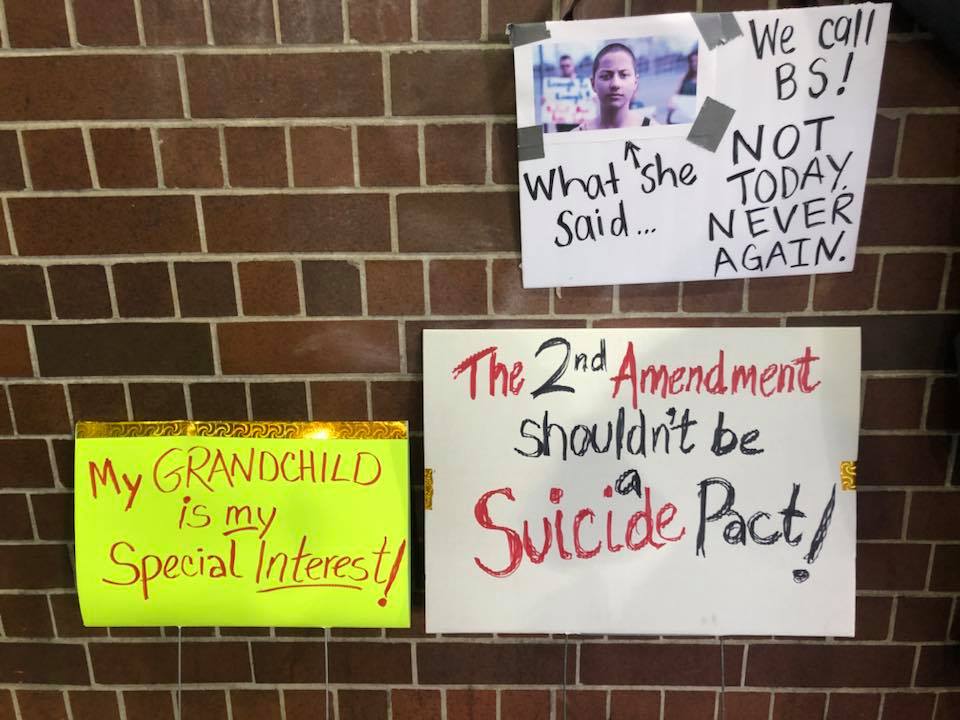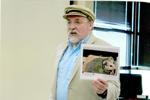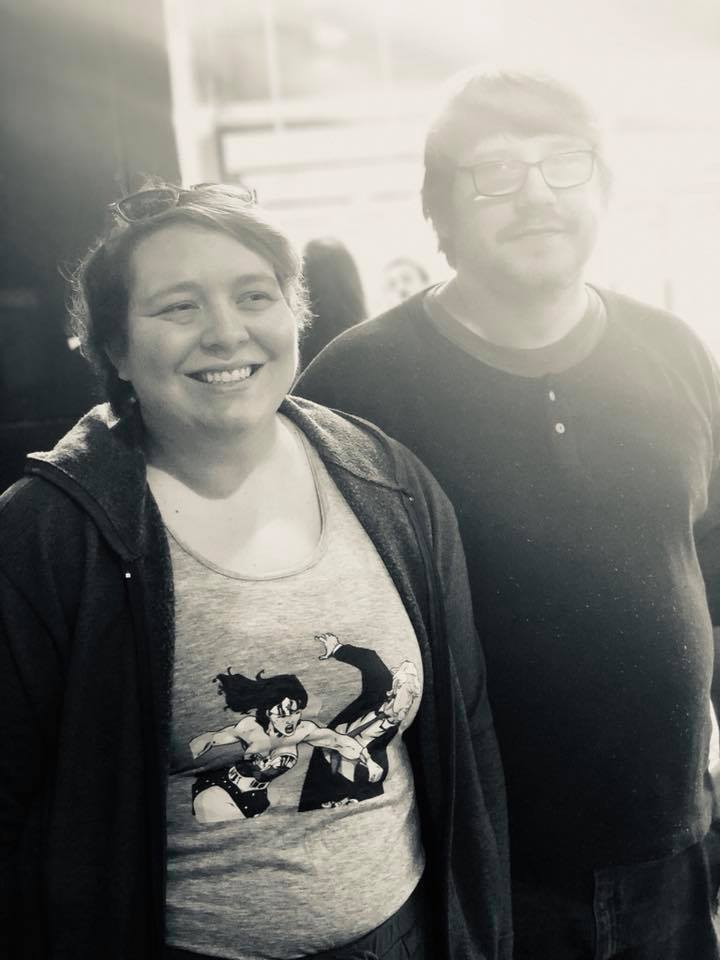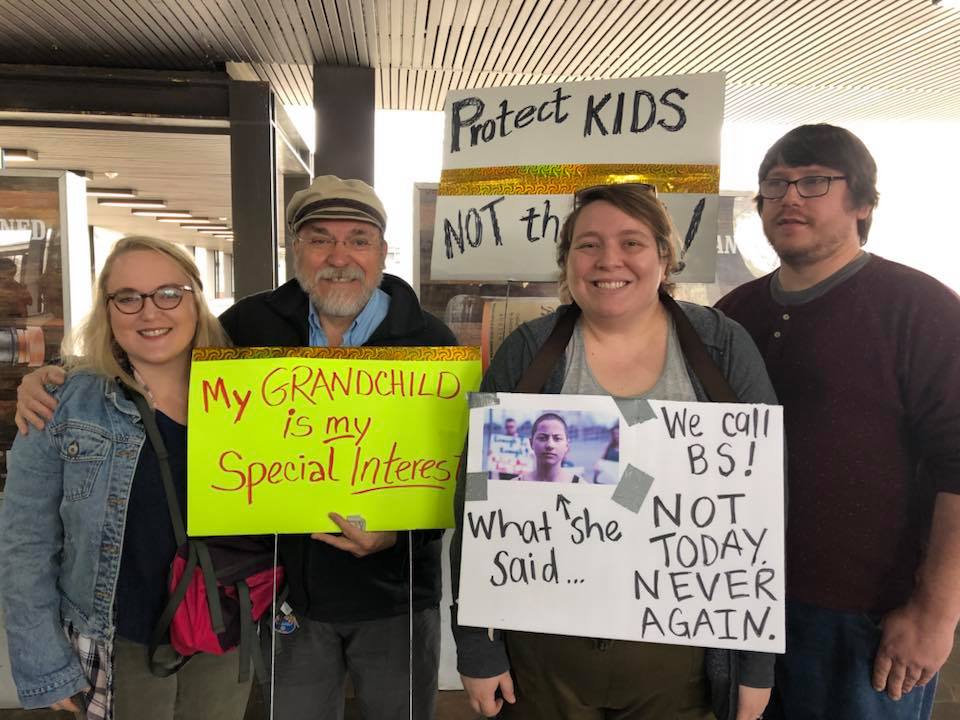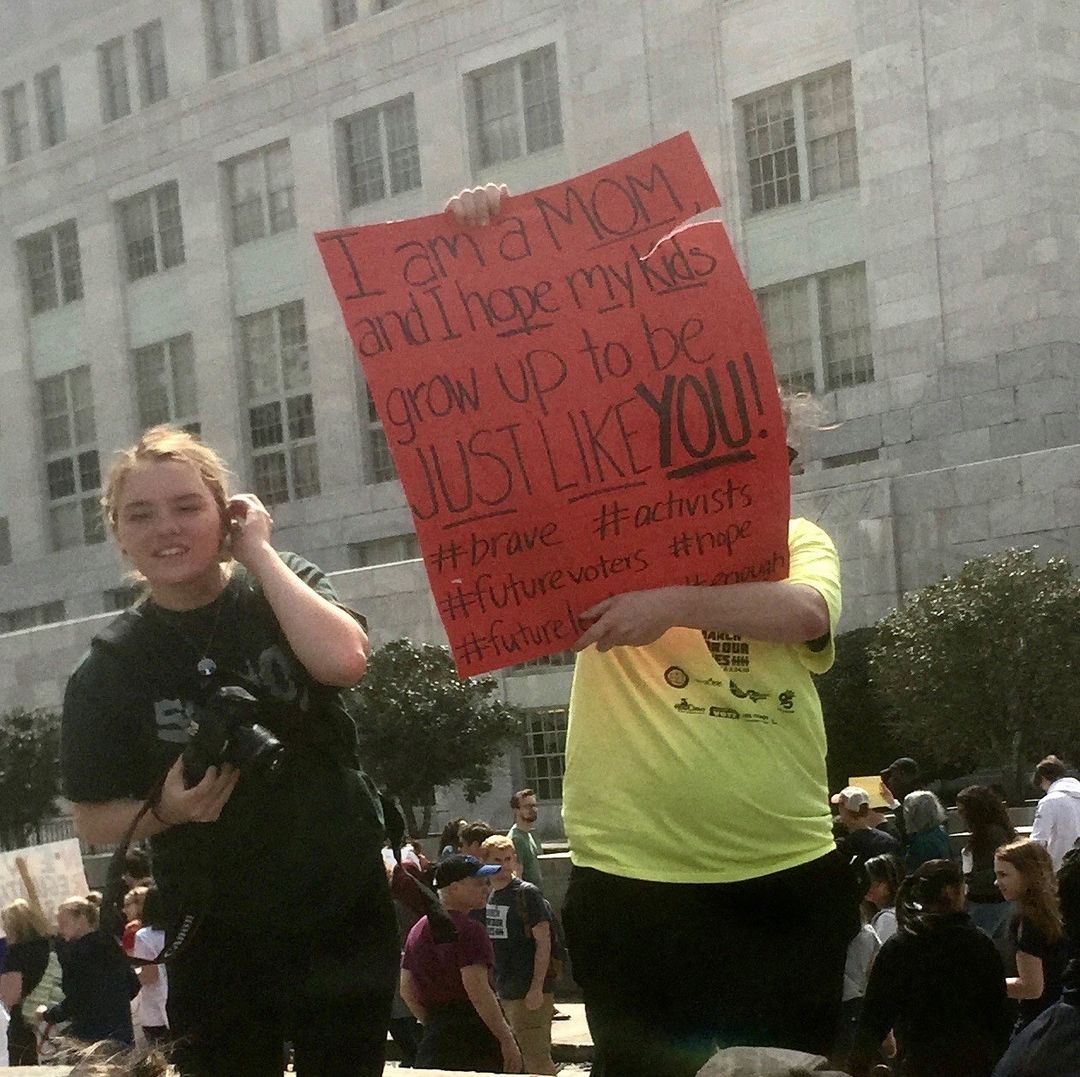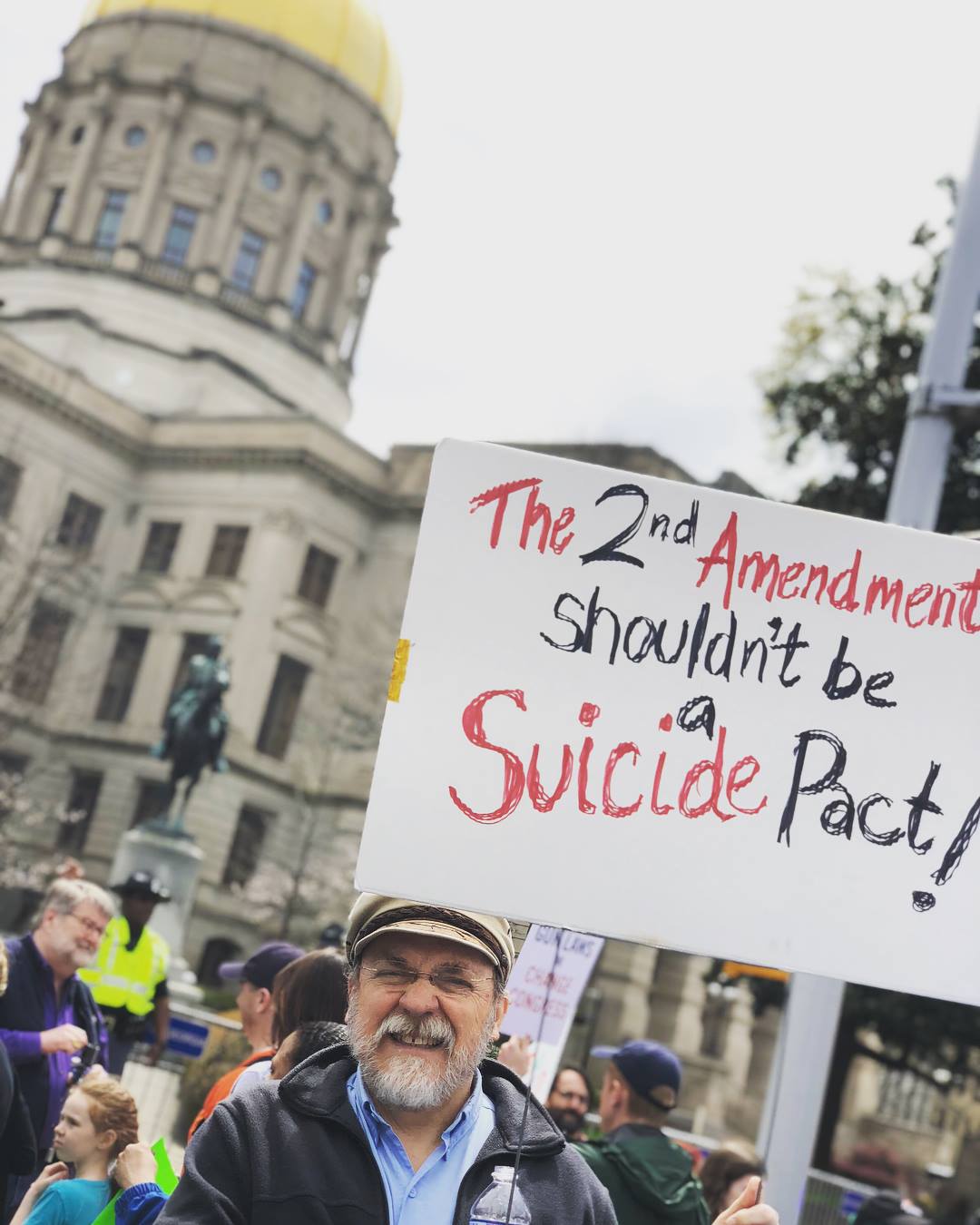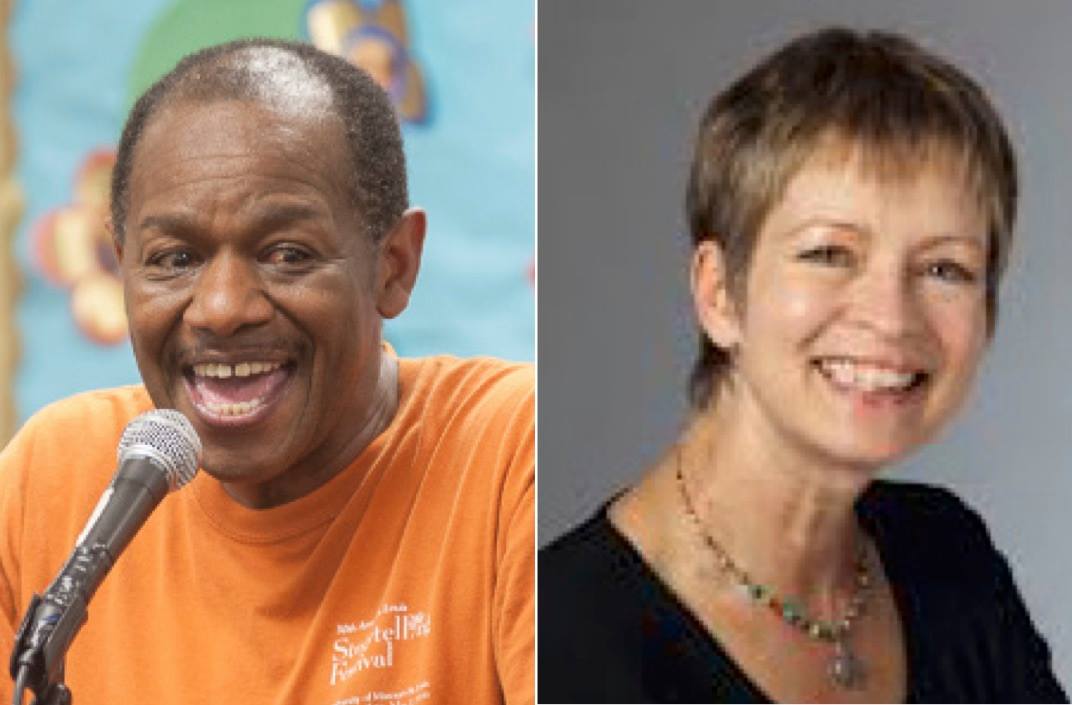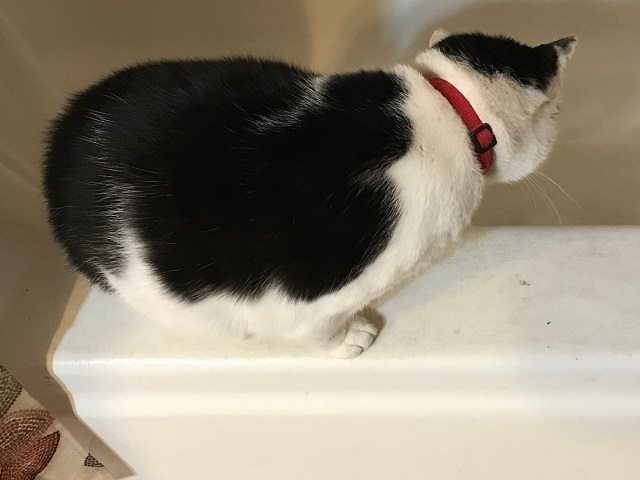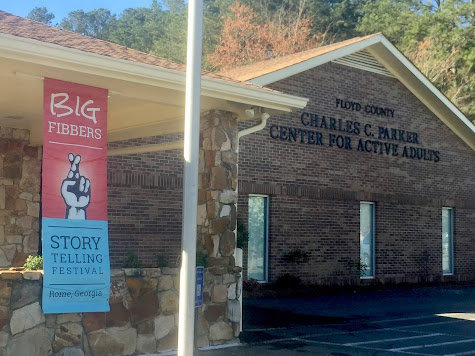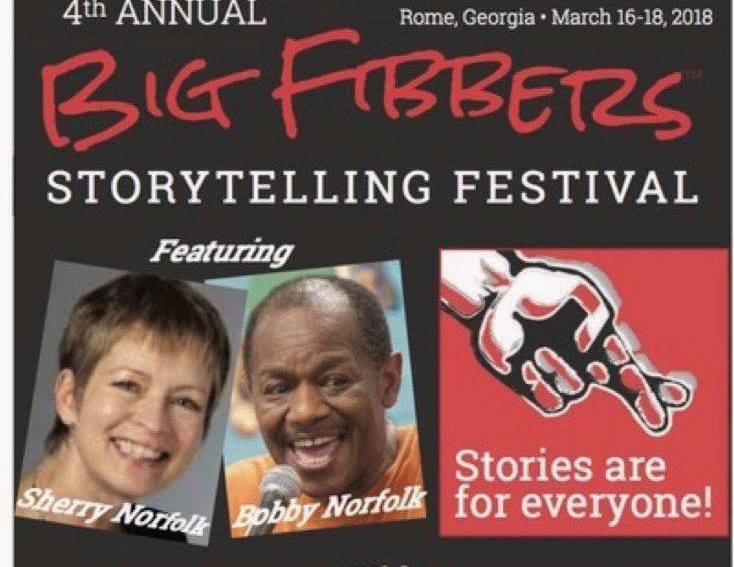Storytelling is a tradition and an artform that deserves preservation and encouragement. That’s why a group of us organized the Ridge and Valley Storytelling Guild. Our mission is simply to promote storytelling and storytellers in our area. And we think of our area as the land between Lookout Mountain on the West, the Piedmont Plateau on the South, the Blue Ridge on the East, and Tennessee on the North. If you live in the Great Valley of Georgia or the Armuchee Ridges of Georgia, you live in Georgia’s Ridge and Valley Province, and those are the ridges and valleys where we want to promote storytelling!
I’ve been listening to, and telling stories all my life.
I remember sitting on a bed with several sisters while my Mama told or read Bible stories or Uncle Remus stories before bedtime.
Daddy had converted a small outbuilding behind the parsonage at 333 South Ninth Street into a study, where he could try to escape a house full of kids and prepare his sermons. But Daddy was an easy mark for us. We’d tap on the door and beg him to tell us stories. As often as not he’d give in and Carol and Debbie and I, and maybe even Beth as she grew out of toddlerhood, would crowd around his feet, and seated in a wooden revolving desk chair, sometimes with Beth or Debbie in his arms he’d transport us back to the nineteen twenties and early thirties and the narrow gauge tracks of the Dinky, the little railroad from Milstead to Conyers, or the old first Barber Shop Daddy Shaw had owned on the hill near the water tower, or the banks of the Yellow River, or the dirt roads between Milstead and Porterdale when he was courting our mother.
Donald Davis, dean of American storytelling.
You know the dean of American Storytelling would pretty much have to be Donald Davis. How many of you have heard him tell? He writes wonderful stories. My children grew up listening to tapes of Donald like “Listening for the Crack of Dawn” and “Rainy Weather” Donald is almost as famous for his storytelling workshops as he is for his tales. One of the workshops he does is titled: “How to Kill Grandma”. In it he contends that the best way to kill off your grandparents, in a permanent sense, is to quit telling their stories.
The title of this post is in response to Donald, “Please Don’t Murder Papa!”
All four of my grandparents are dear to me. Four very different people. Each loving in their own way. And each has had an important impact on my life, and the lives of my siblings, and cousins, and their whole extended family.
Mama Shaw
Now I loved my Mama Shaw. She lived to be in her nineties and I loved to sit with her at the dinner table -- after we’d help clear it and had washed and scalded and dried and put away the supper dishes -- she’d leaf through those three family picture albums and tell me all about those strange looking men and women and children.
Nathan Wood my Great-great-grandfather who lied about his age and enlisted in the First Georgia Cavalry at 16 during the War Between the States. from "The Shaw Family" album.
She has a Wilkerson Family album of her parents and their family, a Shaw Family album of Daddy Shaw’s parents and their family, and an Our Family album full of pictures of my daddy and his four brothers at all ages, as well as cousins, and later wives. She had stories about them all. As she turned slowly through those albums with me by her side I learned about her dapper Uncle Jim, her chubby and cheerful Aunt Lou Annie; her beautiful young mother who died at 29, and her Grandpaw Wilkerson with his old hounddog’s head resting on his knee.
A family dinner at Mama Shaw's house.
My Mama Shaw was longest with us and so perhaps I knew her best. What a slave driver! That woman! During my pre-teen years I lived in anticipation of the glorious week of summer when I’d get to spend the week in Mama Shaw’s house. And it WAS Mama Shaw’s house. Dady Shaw lived there, but it was her house. And she kept it immaculately clean. Maybe it was because of her loss of her mother to disease as a ten-year-old that she had very real concerns about dirt and germs. The dishes were washed in water so hot I worried it’d remove skin, and then as they drained by the sink she boiled a big pot of water on the stove and scalded the dishes with it.
Mama Shaw was, indeed, an assertive woman. Her grandchildren, and for that matter her sons and husband, were her household servants. When we were in her house we worked. Besides the dishes, she had us sweeping, hanging out laundry on the line, scrubbing the tub and toilet, and raking the front yard. Those huge water oaks out front had buckled the sidewalk and even the curb and road, and completely shaded out grass underneath. So the little front yard was dirt covered by water oak leaves. We raked ‘em. But Mama Shaw had methods. And we were required to follow them carefully. The yard needed to be completely cleared of leaves and the earth beneath should be raked so that neat parallel tine lines would run exactly perpendicular to the sidewalk.
If I could sneak into Jack’s little room in the back corner of the house, there was a treasure trove that could occupy me for hours. Next to his cot was a small desk and a little bookcase neatly stacked with a hundred or more comic books! There were Little Lulu , Archie and Jughead, Casper the Friendly Ghost for light reading, but I preferred the meatier Superman, Batman, the Green Lantern, or my favorite, Superboy. At that age I preferred the teenage superhero and his adventures to those of the grown-up.
Daddy Shaw
But even better than Jack’s comics was slipping out the front and walking down Milstead’s lovely divided and shaded Main Street, just a few doors down, to the Callaway Mills Community Center. I’d jump off the rockwall next to the sidewalk into the sandy yard of the community center climb the steps onto that huge full length front porch, turn right and walk all the way to the end and the last door with its barber pole and the full width sign above it with big Coca-Cola emblems on both ends and Grady’s Barber Shop in black block letters in between. Inside was a wooden chair with turned spindle back and legs bolted atop a cabinet with cast-iron foot rests and a couple of drawers filled with shoe polish, brushes, blacking for the sole edges, and polishing rags. Around the walls on both sides were chairs. At the back was a wall of black and white glass front shelves with lots of big mirrors. A just in front of the mirrors two Black leather, white enamel, and shiny chrome barber chairs with strops hanging from one side and a white enameled lever for hiking the chair up and down on the other.

Daddy Shaw in front of his barber shop in the community center at Milstead, Georgia.
Against the wall beside the chair on the left was a chest-type red Coke machine. To the right of the door was a big heavy cast-iron hat rack with a hat or two and a couple of jackets hanging on it. To the left was the Tom’s peanut machine and the door to the stairs that led to the showers in the basement.
There had been a second barber for that chair on the left at one time, but during all of my childhood, Daddy Shaw stood behind the one on the right, and the left one was usually my perch. I loved that chair. It was a beautiful mechanical wonder. It could be modified --- pushed, pulled, or cranked to various heights and degrees of leisurely reclining. In it I was close to the storytelling that my grandfather and his customers emitted so endlessly. With luck one of the guys would need a shine while he waited. It was an easy dime for me and I became fairly expert at whisking the shoes with a brush and whipping them with the polishing cloths.
And with that dime... or maybe two, the possibilities we’re inspiring. I could swap that dime after a two-minute walk to the drug store lunch counter for two scoops of ice cream on a cone, I usually chose cherry. If I had that second dime it’d get me a new comic book to take back to the shop. On the other hand I could just ask Daddy Shaw to change the dime for two nickels. One would go into the Coke machine. I’d grab a six-ounce bottle by its cap and pull and push it this way and that to get it around the maze inside the chest and pull it out. I’d hold it up to the light to see if it had those much prized ice flecks floating about. I'd remove the cap with the built-in bottle opener on the side, then take the other nickel over to the Tom’s peanut machine. Opening the little cellophane envelope of peanuts I’d carefully empty them into the Coke bottle.
Back in the spare barber chair I’d listen as Daddy Shaw told stories on himself.
Like the time he’d been working in Atlanta all day, probably selling Knapp Shoes door-to door, or Kirby vacuum cleaners. When it came time to catch the train home he was so tired he went to sleep about the time the train started pulling out of Terminal Staion. Jerking of the car woke him a some point later and as he glanced out the window, he decided suddenly that he’d slept through the whole trip and the kudzu outside the window was beside the tracks in Conyers. He grabbed his belongings and ran toward the rear of the car and jumped off as the train was picking up steam leaving the station.
Looking around from beside the tracks he looked up at the sign hanging from the station platform: Decatur! He’d only slept a few minutes. He was sixteen miles from home with only his two tired legs for transport.
Or out of Mama Shaw’s hearing, he might tell of the time he tried to teach “Li’yun” to drive, but thought better of it when she reacted to an approching vehicle in an intersection by throwing up her hands from the steering wheel and screaming.
Mama Baird
I remember snuggled up on the porch swing at my Mama Baird’s house listening to her and her sisters Cora and Molly, the oldest living creatures I could imagine, giggling like little girls as they told about the odd antics of that Confederate cousin of theirs who came back from the war shell-shocked.
Mama Baird kept a wooden bread bowl of flour out all the time covered with a dish towel and ready to be used to mix up --- you must do it with very clean bare hands! --- the best biscuits ever created. And my Aunt Mary, who still lived in her mother’s house, often made homemade divinity and fudge. There was also a tin of clove candy sticks always available there. And flowers! She kept a flower bed out front and used old windows against the high crawl space at the back of the house for a bit of a hot house there for her plants early in the spring. Now I know its an invasive species, but the huge Chinaberry Tree at the back steps was wonderfully climbable and offered a great rampart from which to bombard sisters with those hard yellow berries.
Mama Baird with my brother, David.
Late in my life, even as a young married man, I loved to see the look of pure joy on her face when I showed up at her door, and her effort at good influence when she’d press a few coins into my palm as I was leaving, wanting me to mail it for her to the Billy Graham Evangelical Association.
Papa
My maternal grandfather was just called Papa by most of my relatives. He too influenced my life and his stories bring me encouragement and wisdom. Benjamin Wilson Baird’s name has come down through several cousins and a nephew, Benjamin. He was a farmer and a very devout Christian. Every day ended in the farmhouse in Newton County with the family gathered around for “family devotions” which included Bible reading, and Bible stories, and prayer. More than once the family was interrupted by a neighbor riding up: “Mr. Baird can you come over and preach over our father. He died today." B.W. Baird was not an ordained exhorter like his wife’s granddaddy, but he was a lay preacher, and he sometimes filled in when the circuit preacher wasn’t around.
My much older cousin, Aubry, told about the day my grandfather sat at the neighboring farm of his cousin, Aubry’s father, Jason. “Jay,” my grandfather said, “I believe I’m going to go over to Porterdale and get a job at Bibb Manufacturing.” The boll weevil had about done in cotton farming and times were tough. Jay shook his head and sighed and replied, “Wilse, I believe I’d go to sharecropping before I’d raise my children in a mill town."
Well, both my parents can trace their ancestry back to some pretty well-connected folks on both sides of the Atlantic, but they are also "lintheads" from milltowns, and they both did OK. Wilson Baird moved his nine living children into a mill house in Porterdale and began working there. When another of Jason’s boys, Howard, decided to answer the call to preach, he came to Porterdale to talk with his Uncle Wilson. My Grandfather gave him this advice, that I think maybe influenced several preachers I know. He said, “Howard, you cant scare folks into the Kingdom, you’ve got to love them into it."
Soon his eleventh child, my mother, was born. And then disaster struck as the baby and little Leon, only four, came down with the measles. Ruth recovered, but Leon's infection moved into his lungs and he died.
On his own death bed Papa told my Uncle Tom that he hoped one of his sons would be called into the ministry. Well, that wish didn’t come true but his youngest child, my mother, married a minister, and later answered the call to become a pastor herself. She still occasionally preaches at 95.
And now, as Paul Harvey might say, the rest of the story. Please don’t murder the Papas who have been important in your life. I think my family is a good object lesson in that. I was influenced by all four of my grandparents, three of them directly, but one, Papa, only through the stories! The stories passed down through Aubrey and Howard and Uncle Tom and my mother and others have given me my maternal grandfather.
Benjamin Wilson Baird is on the 1860 United States census of Georgia at three-twelfths of a year old. And even though he has been very influential in my life, I never met him in person. He died when my mother was nine and fifteen years before I was born.
As far as I know this is the only picture of Benjamin Wilson Baird.
